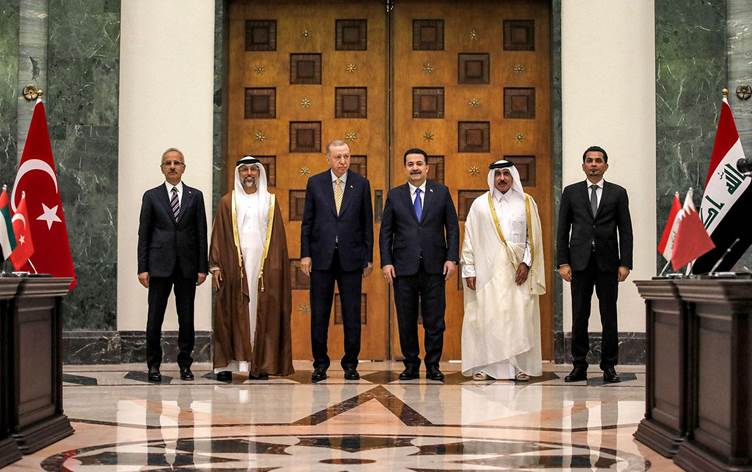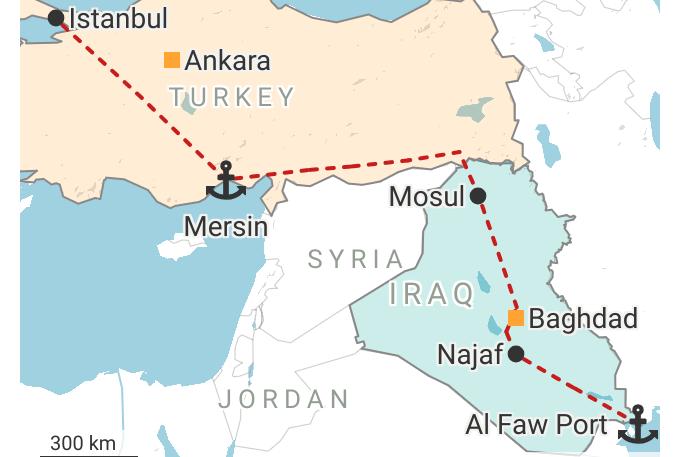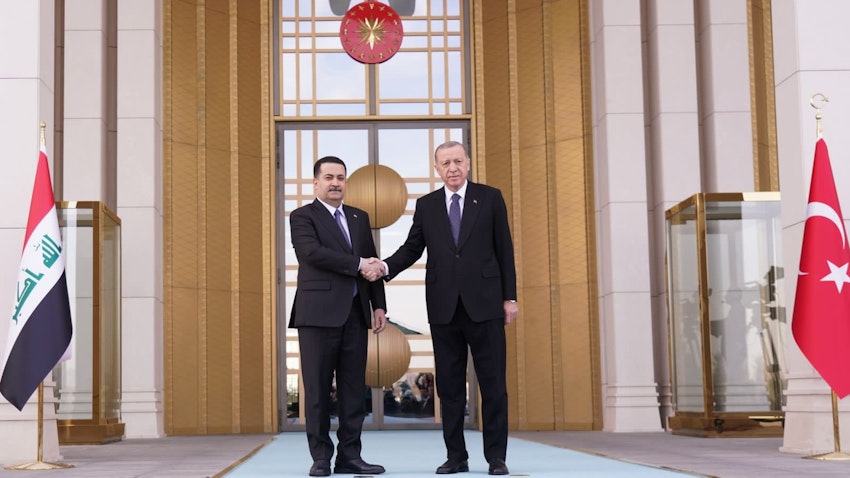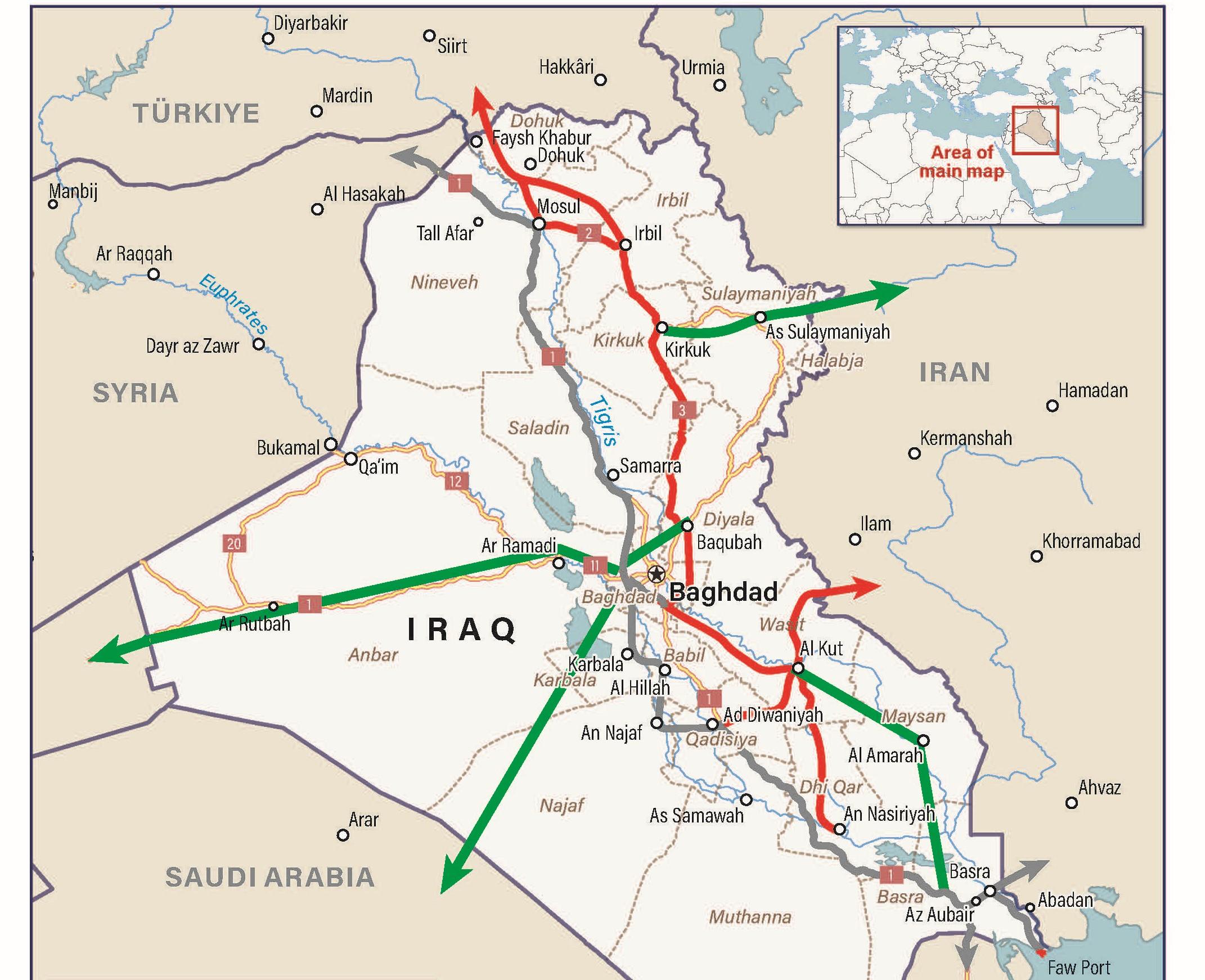Türkiye-Iraq diplomatic thaw and regional integration Ambitious vision
On April 22, Turkish President Recep Tayyip Erdogan landed in Baghdad to conduct his first official visit to the country after thirteen years. Erdogan's visit came at a time of Türkiye's new military operation in northern Iraq against the Kurdistan Workers' Party (PKK), which Ankara designated as a terrorist organization. Shortly before President Erdogan visited Iraq, Turkish Foreign Minister Hakan Fidan held meetings in Baghdad, which resulted in the latter’s decision to label the PKK as a terrorist organization. Indeed, the move marked a significant milestone in bilateral relations between Ankara and Baghdad.

Another significant development during the Baghdad visit was the signing of agreements between Türkiye, Iraq, Qatar, and the United Arab Emirates (UAE) on a transformative transport project. This project, known as the Development Road Project, holds immense potential to link Iraq to Europe and eliminate long-standing water disputes between Türkiye and Iraq. Qatar and the Emirates, as potential sponsors, are set to invest in this estimated $20 billion transportation link spanning 1,275 kilometres from the oil-rich southern Iraqi province of Basra to Türkiye via road and railway, promising a boost to Iraq's economy.
Water from the Tigris and Euphrates rivers has been a significant point of contention between Iraq and Türkiye, with Baghdad accusing Ankara of restricting its access to its water lifeline through the use of dams. The Development Road project, stretching from southern Iraq to the border with Türkiye, aims to connect the Persian Gulf with Turkey, significantly enhancing Iraq's geopolitical stance and generating economic gains for Baghdad. When completed, the project will also shorten the travel time between Asia and Europe.

The broader project will include a highway and rail line dubbed the “Dry Canal” corridor. The corridor, which is expected to be completed by 2038 and cost around 20 billion dollars, will pass through Diwaniya, Najaf, Karbala, Baghdad, and Mosul and extend to the Turkish border, providing access to Mersin Port and Europe via Istanbul. However, the implementation of the project depends on certain geopolitical factors, such as the continuous smooth relations between Ankara and Baghdad.
On Türkiye’s side, 615 km of new railway and 320 km of new highways will also be built to connect it to the Turkish network, with a combined cost of around $25 billion in both countries. The Turkish authorities believe that the transport project will be the best, shortest, and most affordably priced route within the South-North corridors that will connect East Asia, the Middle East, and Europe.

President Erdogan's visit to Iraq holds significant strategic importance for both countries, particularly the Iraqi Kurdistan region, in the context of recent tensions with Iran. The PKK, a notorious problem for the Iraqi and regional Kurdistan governments, has been a presence in northern Iraq and Syria for years, triggering diplomatic confrontations between neighbouring states. Historically, the PKK has been the arch-rival of the Iraqi Kurdistan region, launching frequent attacks. Therefore, President Erdogan's recent visit to Baghdad and Erbil aligns perfectly with the interests of all parties, providing a crucial insight into the complex geopolitical dynamics of the region.
The rapprochement with Türkiye will enable Erbil and Baghdad to alleviate security concerns and invest more in regional interconnectivity. Considering that neighbouring Iran is suffering under heavy international sanctions and motivated by a policy imperative to keep Iraq dependent and in Tehran’s sphere of influence, there may not be any concessions the project’s backers could offer to alleviate outsized Iranian concerns.

As Iraq navigates through regional geoeconomic and geopolitical rivalry, it faces the challenge of competing trade connectivity projects. However, the recent agreement with Türkiye, Qatar, and the UAE presents a promising opportunity for Iraq to establish itself as a sustained regional country. The potential failure to realize this opportunity, especially if caused by corruption and mismanagement, could reinforce the perception that Iraq is unable to diversify its economy and escape the rentierism trap. Therefore, the successful implementation of the Development Road Project could be a beacon of hope for Iraq's future.
In this vein, Ankara-Baghdad diplomatic normalization and the recent decision to thwart the PKK threat boosted optimism on both sides regarding fruitful regional dialogue and pragmatic connectivity partnership.








